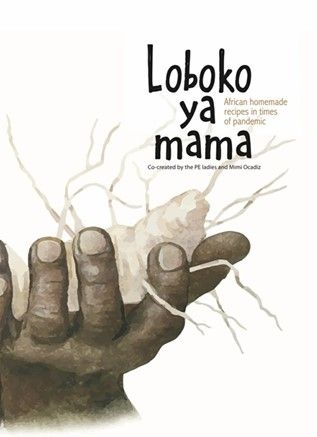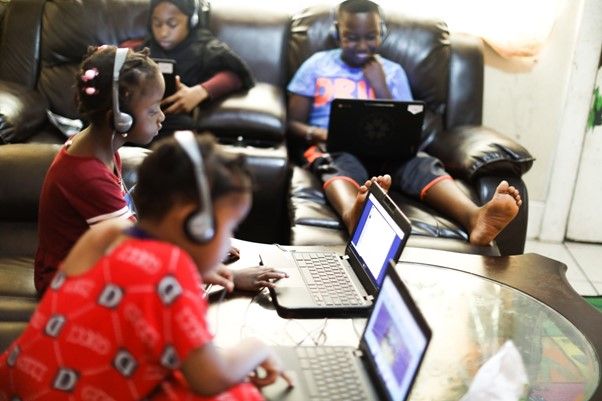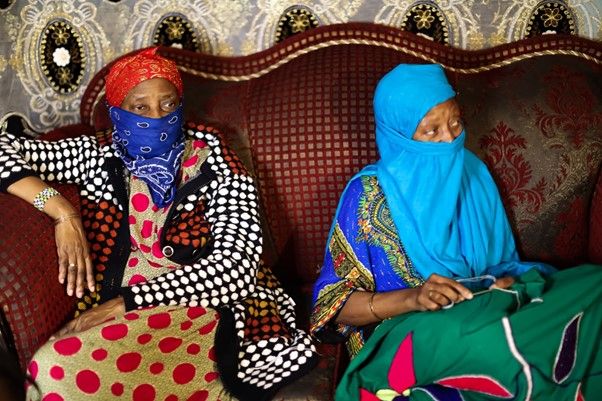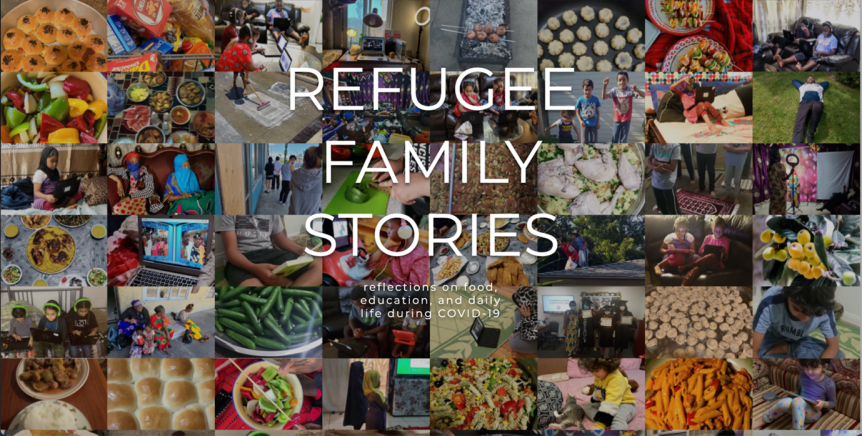The metropolitan community of City Heights, San Diego is home to 95,000 residents from 70 countries living within approximately 6.5 square miles. Within this complex landscape, non-profit, ethnic- and community-based organizations, and highly engaged residents dedicate their expertise, experience, and passion to the community.
Whereas San Diego County’s approach to refugee resettlement has recognized the importance of housing, language acquisition, and employment, education has remained largely absent on policy agendas. Yet, for many families, education is the first point of contact in a new community. Among City Heights’ Crawford and Hoover cluster schools (encompassing 23 elementary, middle, and high school sites), there are between 2,000 and 3,000 refugee students enrolled – the vast majority of whom are English language learners who have experienced interruptions in their formal education. While policymakers have been slow to respond, parents, grassroots, community and ethnic-based organizations have organized around their own vision for education in community schools. During COVID-19, the importance of this community work has been magnified.
Envisioned as an expression of solidarity, Education for Change, hereafter referred to as Refugee Family Stories aims, on the one hand, to identify the challenges that this pandemic presents to City Heights residents, and, on the other hand, highlight the resilience, the joy, and above all, the leadership of refugee communities in City Heights. In collaboration with the Parent-Student-Resident Organization (PSRO), a refugee- and immigrant-led community coalition comprising twelve language groups advocating for healthy students, supportive schools, and educational equity in City Heights, this project takes a creative and family-centred approach to explore how food, education, and daily life have been experienced during the COVID-19 pandemic. Above all, this project aims to cultivate knowledge and community through sharing family stories and centring refugee perspectives and leadership.
The process
Beginning in April 2020, together with four PSRO households in City Heights, a community organizer within the PSRO, and a trusted community translator, we developed a visual storytelling project to document the pandemic. In a large way, we consider this project an “experiment in imperfection.” So, what do we mean by this? Firstly, this project departs from a position of humility – not only in terms of intentionality, but also in terms of technology (in 2020, using Zoom was very new to us). While we started this project with a specific aim: to tell families’ stories, there was also a lot of improvisation. We left the ending open. I remember Famo, one of the participants, sharing that she didn’t think about this project as a project until we were halfway through it. We really tried to let it evolve organically, guided by curiosity and a desire to know one another better.
We created a WhatsApp group for sharing and exchanging texts, photos, videos, and voice memos. In our very first Zoom meeting, we agreed to share anything and everything that we wanted to share with each other. By keeping things broad, at least at the start, we were able to get to know one another better. We agreed to meet on Zoom every two weeks to have collective dialogues about what was shared in WhatsApp, and to reflect on how our weeks were going, how we had been feeling, and to offer support to one another.
Through these dialogues, and the media that we shared in WhatsApp, three themes began to emerge: food, education, and daily life. We decided to dedicate our next meetings to focus in on each of these topics.
Theme 1: Food

When we started this project, the WhatsApp group quickly filled up with photos of food. Some participants were observing Ramadan, spending hours in the kitchen, teaching their children how to cook new recipes. Our online gatherings were punctuated by many mmms, comments like “That looks delicious!” and questions like “What are the ingredients in that dish? Where did you buy that item?” For everyone in this project, food has a special place in our hearts (and bellies) – connecting us to our families, our histories, our cultures and traditions. Through this project, we were able to welcome one another into our homes and kitchens. We were able to learn about what other families eat, how they cook it, and who they share their meals with. Simply put, food offered us a way to honour the knowledge and creativity of one another.
Theme 2: Education

Through this project, we were able to learn about how different families were experiencing the shift to online learning, we were able to discuss challenges and concerns, and share strategies for resilience. One of the things we spent a lot of time discussing was the experience of being a parent, a teacher (to one’s own children during online classes), and a student (as English-language learners, or students enrolled in university or college). By spotlighting the household, centring not only the home, but the family, we were able to invite a deeper understanding of how inequalities in education take shape, shift, and/or endure during a pandemic.
Theme 3: Daily Life

By sharing about our daily life, we were able to recognize commonalities, shared struggles, points of connection, and differences, all of which allowed us to honour and respect each other’s unique stories. For all of us, it was fun and interesting to learn about each other’s routines, and hear about what a typical day looks like for each family during COVID-19. Since the project overlapped with Ramadan, we were also able to discuss how the daily practices of those who were observing Ramadan changed, and how Ramadan itself was experienced and observed during the pandemic.
Going Public
At the end of the project, we had one-to-one follow-up meetings, where we reflected on the project as a whole, and also discussed how to go public with the stories that were shared. We decided to create a website in order to archive all of the photos, videos, and stories, and to organize a community event to reflect on and celebrate this project, which took place in May 2022. Through the suggestion of Asia, the Arabic translator for the project, we collectively decided that we wanted the event to be centred around joy, to be a celebration of community. During the event, we screened a short-documentary where the project participants reflected on the key themes of the project, shared a meal together, and launched our project’s website Refugee Family Stories (www.refugeefamilystories.com), which is available in English, Arabic, and Swahili. Envisioned as an expression of solidarity, this contribution offers a window into the lived experiences of four PSRO households in City Heights, with an aim toward making visible the knowledge, creativity, and, above all, leadership of this incredible community.


